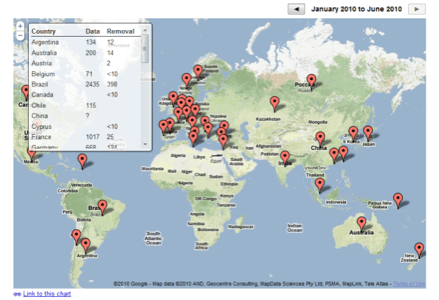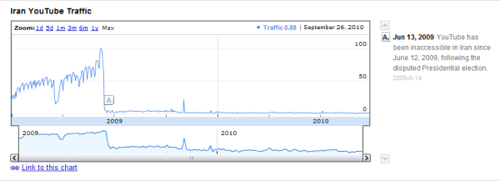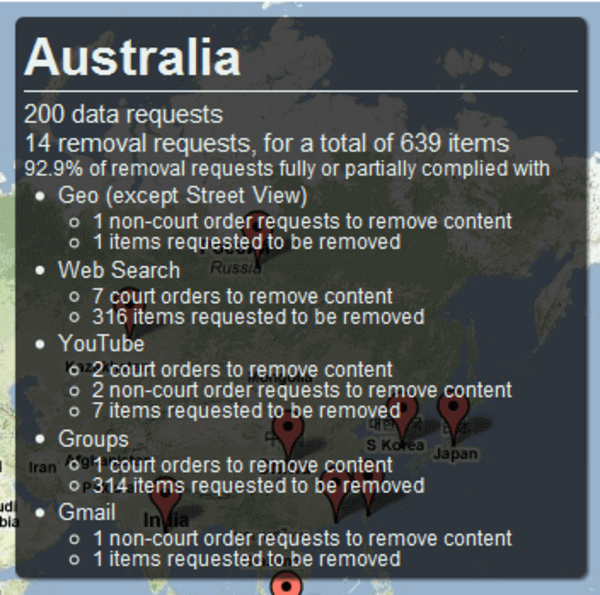Google has released its second six-month Transparency Report. This report, consisting of graphs and charts, shows how many times a government requested user data from the company and how many times it has requested removals. It also shows interruptions in traffic flows for different Google properties, by country.

During the last six months of 2009, the U.S. made 3,580 requests. The first six months of this year, they’ve made 4,287.
At 128, the U.S. still trails in take-down requests vs. last year’s leader Brazil, with 398. Brazil objected to its inclusion in last year’s report. Some have insisted their requests are almost all related to child pornography investigations and others that the popularity of the Google-owned Orkut social network helps explain the high numbers.

A click on the pinned locations on the map will provide the percentage of requests complied with, or at least partially complied with.
Overall, the numbers, both of information requests and of information take-down requests, are higher. Online censorship has been growing, not declining, in the last year.
Another element of the report are the traffic reports. Through these, a user can isolate moments of downtime in various Google products at various times. A sudden precipitous fall in YouTube traffic, for instance, is a pretty good indication that the government involved has blocked it, as Iran did during last year’s elections.

The traffic charts, powered by pull-down menus of properties and countries, also come annotated with a full or partial block notice, when those actions have been verified.
Frankly, this tool is of greater use to scholars, technologists and activists than the laity. It isn’t easily read nor easily cross-referenced. All Chinese, and some Iranian, data are not provided, so it isn’t complete either.

“There are limits to what this data can tell us . . . Because of the complexity of these requests, the numbers we are sharing do not reflect the total number of accounts subject to data disclosure requests by governmental agencies . . . We hope to provide more detail about our compliance with user data requests in a useful way in the future.”
So do we. But given how little information most companies are willing to give out, it is still a great resource. As more data is compiled in the coming six-month periods, who knows what kinds of observations might be made about the global accessibility of information?

















